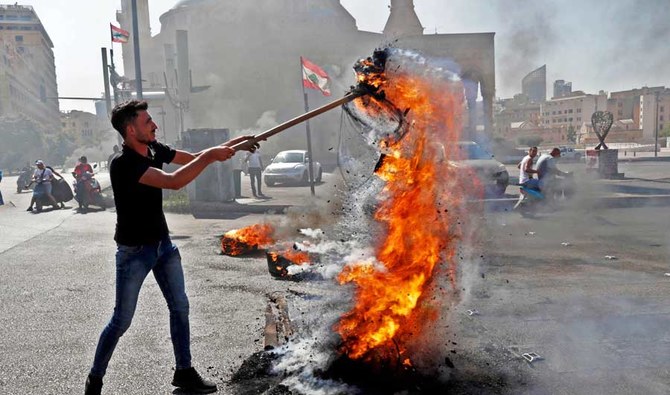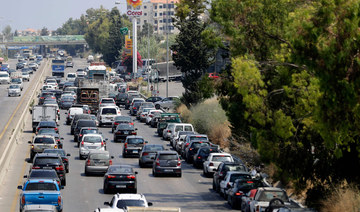BEIRUT: Lebanese authorities have rejected suggestions that the country is planning to import oil from Iran amid a worsening energy and currency crisis.
Lebanon’s energy ministry on Saturday said that it had received no requests for a “permit, either from an official or private party, to import oil from Iran.”
The official Lebanese response followed a tweet by the Iranian Embassy in Beirut saying that “the arrival of Iranian oil tankers does not need the attention of the US ambassador.”
The embassy warned the US envoy not to intervene “in the brotherly relations between the Iranian and Lebanese peoples.”
A photo of an oil tanker at sea was attached to the tweet.
The tweet heightened speculation about the imminent arrival of an Iranian tanker in Beirut port following a proposal by Hezbollah that Lebanon look to oil imports from Iran.
On Friday, the US envoy in Lebanon, Dorothy Shea, told a local television station that importing fuel oil from Iran “is not a practical solution.”
She added: “What Iran is looking for is a sort of dependent state that it can use to carry out its agenda. There are much better solutions than turning to Iran.”
She added: “The US has always been by the side of the Lebanese people, but Iran looks at Lebanon as being a state that could help it implement its agenda.”

Traffic cut off at Habbush Triangle, Nabatiyeh, Iqlim Al-Tuffah. (Supplied)
Hezbollah chief Hassan Nasrallah said that his party is “working in the background to implement a plan to buy oil from Tehran and pay for it in Lebanese pounds.”
He proposed that two oil refineries be built in north and south Lebanon.
The Hezbollah proposal provoked widespread anger, with former MP Ahmad Fatfat claiming that “Iran wants to keep Lebanon as a card in its hand to use later.”
He said that Lebanon’s economic collapse has allowed Hezbollah to “get its hands on all sectors,” while its ally the Free Patriotic Movement (FPM) “has handed the party all the cards in return for getting power.”
Political analyst Assaad Bechara told Arab News that Nasrallah’s insistence on importing oil from Iran “is a populist step that aims to suggest Iran is helping Lebanon while the rest of the world is doing nothing.”
However, he questioned whether Lebanon’s private sector companies would be willing to risk sanctions by importing Iranian oil.
“The queues at gas stations in Tehran are longer than the queues in Lebanon,” he added.
Attempts to strengthen Iranian influence over Lebanon are unfolding amid a worsening financial collapse, with the exchange rate late on Saturday reaching 18,000 Lebanese pounds to the dollar.
Meanwhile, sparring between Hezbollah allies the FPM and Amal Movement continued over the formation of the government.
As the exchange rate plunged further, demonstrators took to the streets in protest against “the sleeping state that kills its own people.”
Roads were blocked in all regions and shops in popular markets closed down, with their owners saying they no longer know how to price their goods. Later, the Lebanese army reopened some blocked roads.



























